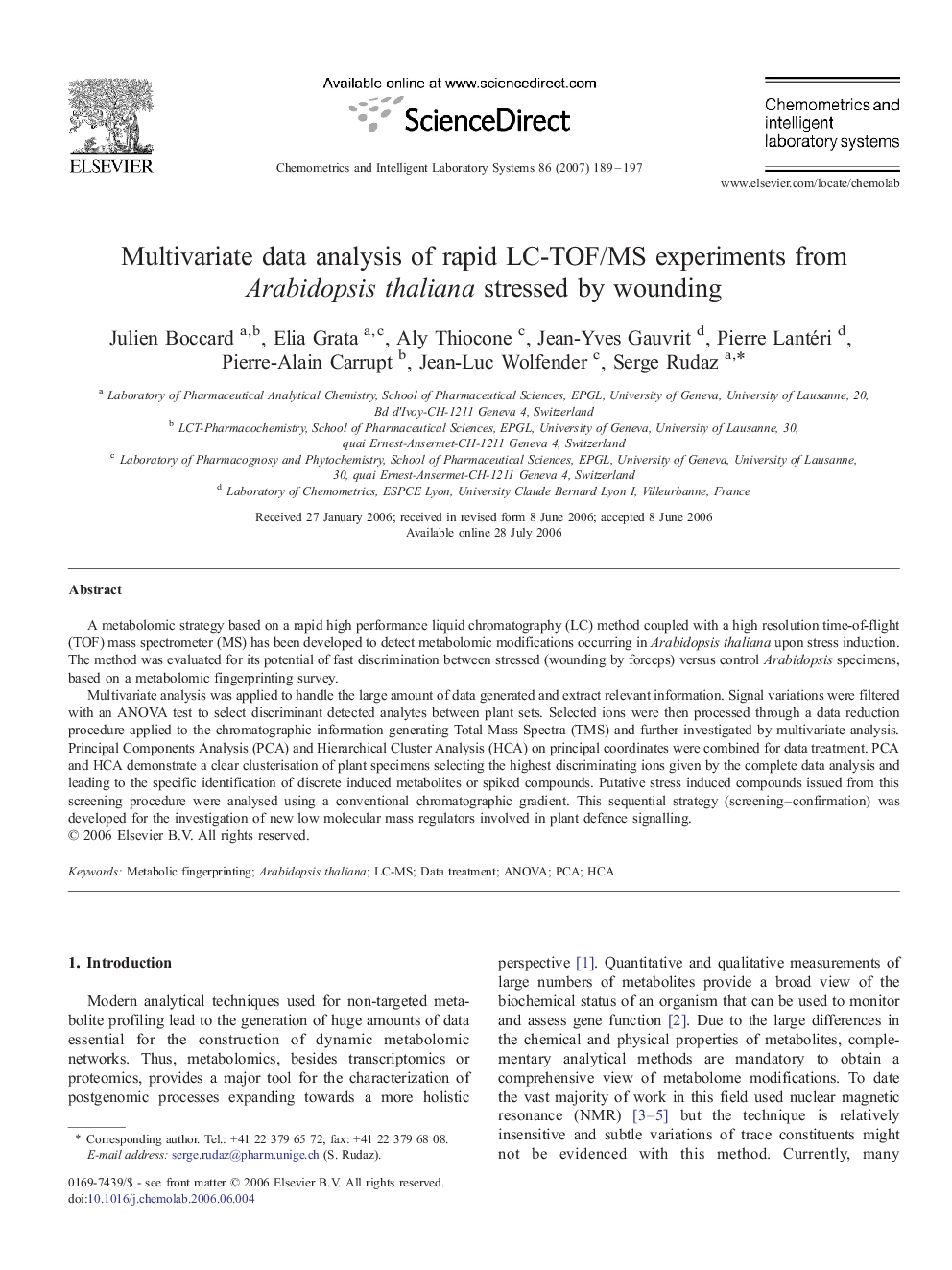| Article ID | Journal | Published Year | Pages | File Type |
|---|---|---|---|---|
| 1180116 | Chemometrics and Intelligent Laboratory Systems | 2007 | 9 Pages |
A metabolomic strategy based on a rapid high performance liquid chromatography (LC) method coupled with a high resolution time-of-flight (TOF) mass spectrometer (MS) has been developed to detect metabolomic modifications occurring in Arabidopsis thaliana upon stress induction. The method was evaluated for its potential of fast discrimination between stressed (wounding by forceps) versus control Arabidopsis specimens, based on a metabolomic fingerprinting survey.Multivariate analysis was applied to handle the large amount of data generated and extract relevant information. Signal variations were filtered with an ANOVA test to select discriminant detected analytes between plant sets. Selected ions were then processed through a data reduction procedure applied to the chromatographic information generating Total Mass Spectra (TMS) and further investigated by multivariate analysis. Principal Components Analysis (PCA) and Hierarchical Cluster Analysis (HCA) on principal coordinates were combined for data treatment. PCA and HCA demonstrate a clear clusterisation of plant specimens selecting the highest discriminating ions given by the complete data analysis and leading to the specific identification of discrete induced metabolites or spiked compounds. Putative stress induced compounds issued from this screening procedure were analysed using a conventional chromatographic gradient. This sequential strategy (screening–confirmation) was developed for the investigation of new low molecular mass regulators involved in plant defence signalling.
